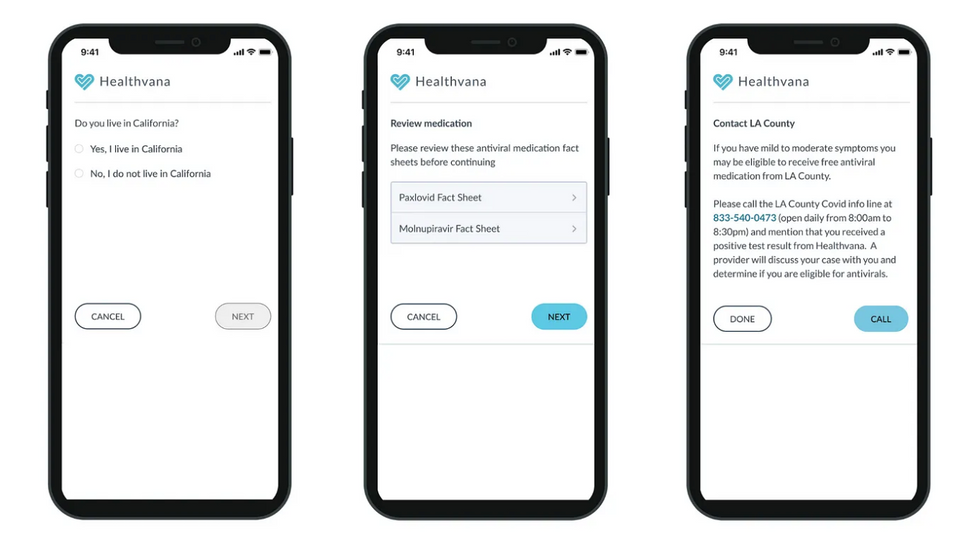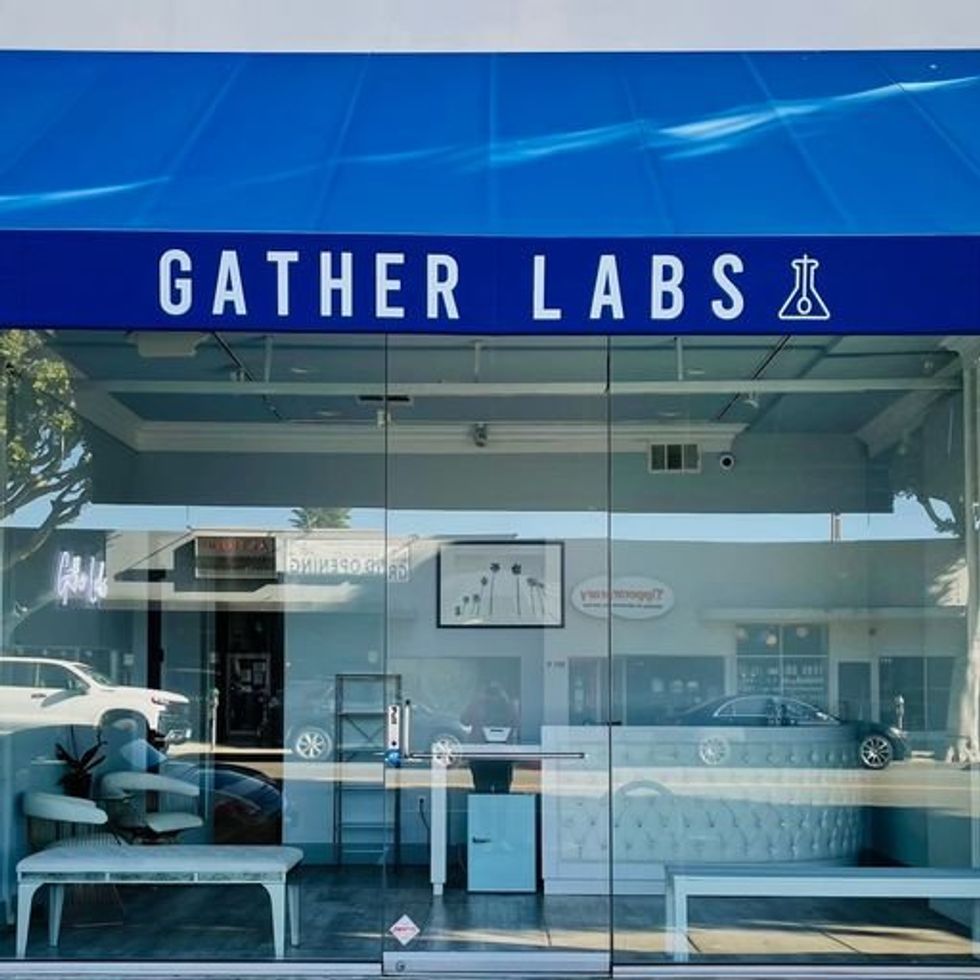‘The Next Solution Is a Wearable’: These 3 Startups Are at the Forefront of Digitizing Health
Decerry Donato is a reporter at dot.LA. Prior to that, she was an editorial fellow at the company. Decerry received her bachelor's degree in literary journalism from the University of California, Irvine. She continues to write stories to inform the community about issues or events that take place in the L.A. area. On the weekends, she can be found hiking in the Angeles National forest or sifting through racks at your local thrift store.

The coronavirus outbreak cast fear across the nation, but the pandemic was extremely stress inducing for those who were medically at-risk. Coupled with the 200,000 health care workers who left the profession last year, there is a bigger need for products and devices that people with medical ailments can rely on wherever they are.
Here’s a look at three local health tech companies creating those solutions and products that aim to help people manage and better their health.
Healthvana

If you’re familiar with Healthvana, it’s probably because the company was known for distributing digital health records during the pandemic. But prior to COVID-19, the Los Angeles-based health tech and software company focused its efforts on HIV prevention.
In 2020, there were 50,243 people living with HIV in Los Angeles County and another 1,382 people were newly diagnosed.
Since 2015, the company’s goal has always been to end HIV and while the pandemic shifted their focus, founder and CEO Ramin Bastani said Healthvana is back to concentrating on its core mission. In December, the company announced its partnership with the AIDS Healthcare Foundation and the launch of a new study to see if a digital watch (in this use case, it is an Apple watch) can help end the HIV epidemic.
“A lot of health care just feels super slow and archaic,” Bastani told dot.LA, “and when you’re talking about a population that wants instant information to their phones, the next evolution is a wearable.”
So how does it work?
Every city will select 100 patients to receive a digital watch at no cost to help them stay consistent with PrEP (pre-exposure prophylaxis)—a once a day pill for men who sexually engage with other men. While PrEP is considered to be 99% effective in preventing HIV, Bastani said “patients who start PrEP, don’t always stay on it.”
Bastani said, prior to this study, Healthvana would send patients who started PrEP a couple reminders throughout the month to check in and see how they are doing.
“We are that software layer that helps communicate from the clinic to the patient,” Bastani said.
But for the study, Healthvana will send daily reminders to each patient through the digital watch to see if this new method will help those who are at risk of HIV to stay consistent in taking PrEP.
The study officially started in January and the five cities participating include Los Angeles, California; Atlanta, Georgia; Houston, Texas and Broward County, Florida.
Bastani admitted that Healthvana has no part in selecting the patients that will participate in the study. The candidates will be selected by health care providers through the AIDS Healthcare Foundation.
Gather Labs

During the height of the pandemic, fashion and bra designer Rachael McCrary was stuck at home with nothing to do so she helped her friend obtain FDA approval on his nucleic acid collection swab.
As soon as McCrary submitted the work, the research organization that handled their clinical trials encouraged McCrary to stop making bras and focus her efforts on diagnostics. But when she did, McCrary quickly learned that the labs they were using were, as she put it, “just a terrible, archaic, dinosaur way of working.”
Her frustration with the lab is what sparked the idea to create Gather Labs, a Beverly Hills-based biotechnology company and CLIA (Clinical Laboratory Improvement Amendments) lab that offers rapid diagnostic testing for patients and health providers.
“I fell in love with testing and it’s really cool to get information about your body,” McCrary said. “What’s not cool is going to Quest or LabCorp, waiting forever and you don’t know when you’re getting your test back.”
Some of Gather’s competitors like Labcorp state that it can take several days to complete the test, while Mayo Clinic’s website says COVID testing will be sent out within 1 to 3 days, but it can take longer in locations with test processing delays.
She added, “I just like people being in charge of their data and people really like diagnostics when you can get it really fast.”
Since its launch in 2022, Gather has over 100 test offerings that range from infectious diseases to toxicology. Some of their most popular tests include a 15 minute rapid antigen test ($55), 29 minute PCR test ($120), 30 minute pregnancy test ($40) and a 30 minute Influenza A+B test ($65).
On average, Gather receives over 1,500 tests each day. But what sets Gather apart is the company’s fast turnaround times varying from 15 minutes to 48 hours.
“We're just willing to run everything immediately. I could see why they weren't willing to do that,” McCrary said. “It is a little more expensive, but our priorities are patient care.”
CARI Health

After Patrik Schmidle witnessed a close family member struggle with opioid use, the idea for CARI Health, a digital health startup was born.
Data from Launch Centers reports that the rate of opioid use in Los Angeles sits at 4.7%, which is higher than the national rate of 4.3%. These numbers prove that there is a need for new solutions, especially in Los Angeles to ensure that the percentage of opioid use goes down.
The San Diego-based company looking to help bring that number down just raised its seed round in January to continue developing its Remote Medication Monitors (RMM) that will allow clinicians to prescribe medications and receive real-time reporting on medication levels.
CARI is still in its early stages, but the RMM is intended to be worn by patients remotely. So as each patient takes their medication, CARI’s device will monitor how much each patient consumed and send alerts to their physician as well as help clinicians make dosage adjustments and can prevent patients from overdosing.
“The strategy is to gain entry in the marketplace by launching medications that are used to treat opioid addiction,” Schmidle said. “But our technology is flexible enough to move into other disease use cases. So we're in the process of prioritizing where we go next.”
- Inside Machina Labs, the AI Robotics Startup That Wants to Transform Manufacturing ›
- Could Your Apple Watch Check Your Blood Glucose Levels? The Technology is Closer Than You May Think ›
- How Real-Time Data Is Helping Physicians Track Their Patients, One Heartbeat at a Time ›
- These 2 Los Angeles Startups Are on the Forefront of a New Space Health Care System ›
Decerry Donato is a reporter at dot.LA. Prior to that, she was an editorial fellow at the company. Decerry received her bachelor's degree in literary journalism from the University of California, Irvine. She continues to write stories to inform the community about issues or events that take place in the L.A. area. On the weekends, she can be found hiking in the Angeles National forest or sifting through racks at your local thrift store.





 Image Source: Tinder
Image Source: Tinder Image Source: Apple
Image Source: Apple